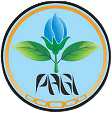EXPLORATION OF INDIGENOUS PHOSPHATE SOLUBILIZING BACTERIA AT AGRICULTURAL LAND AND COASTAL ECOSYSTEMS IN KUPANG DISTRICT
Abstract
Phosphorus (P) is an essential nutrient for plants. Most of the P in the soil is fixed to soil minerals resulting in insolubility and unavailability of the nutrient to plants. One alternative to overcome this problem is the use of Phosphate Solubilizing Bacteria (PSB). This research was carried out in the Plant Disease Laboratory and Soil Chemistry Laboratory, Faculty of Agriculture, Nusa Cendana University from September 2022 to March 2023. The aims of this research were to investigate the occurrence and diversity of PSB isolates collected from the soil of agricultural land coastal ecosystems Kupang, and to determine their ability to solubilize P. At each ecosystem, five soil samples were taken from the rhizosphere of different plants growing in that ecosystem for PSB isolation and soil analysis. Isolation of PSB was based on pour plate method. The growing isolates were purified, calculated for the PSI and then characterized both macroscopically and microscopically. For morphology characterization of PSB (gram properties and cell shape) gram staining techniques was applied. The results showed that a number of PSB isolates, characterized by the formation of clear zone around the colony of bacteria, was obtained from the rhizosphere of plants from the coastal and agricultural land ecosystems accounted for 16 and 9 isolates respectively. The isolates obtained differed in the morphological characteristics and phosphate solubilizing index (PSI) with the PSI value ranged 2.25- 3 for isolates from agricultural land, and 2,14- 4 for isolates from coastal ecosystem. In the future, the isolates obtained from this study need to be further identified and introduced to plants to evaluate their ability to improve plant acquisition of phosphorus.

 Immanuela S. Baloc(1)
Immanuela S. Baloc(1)










